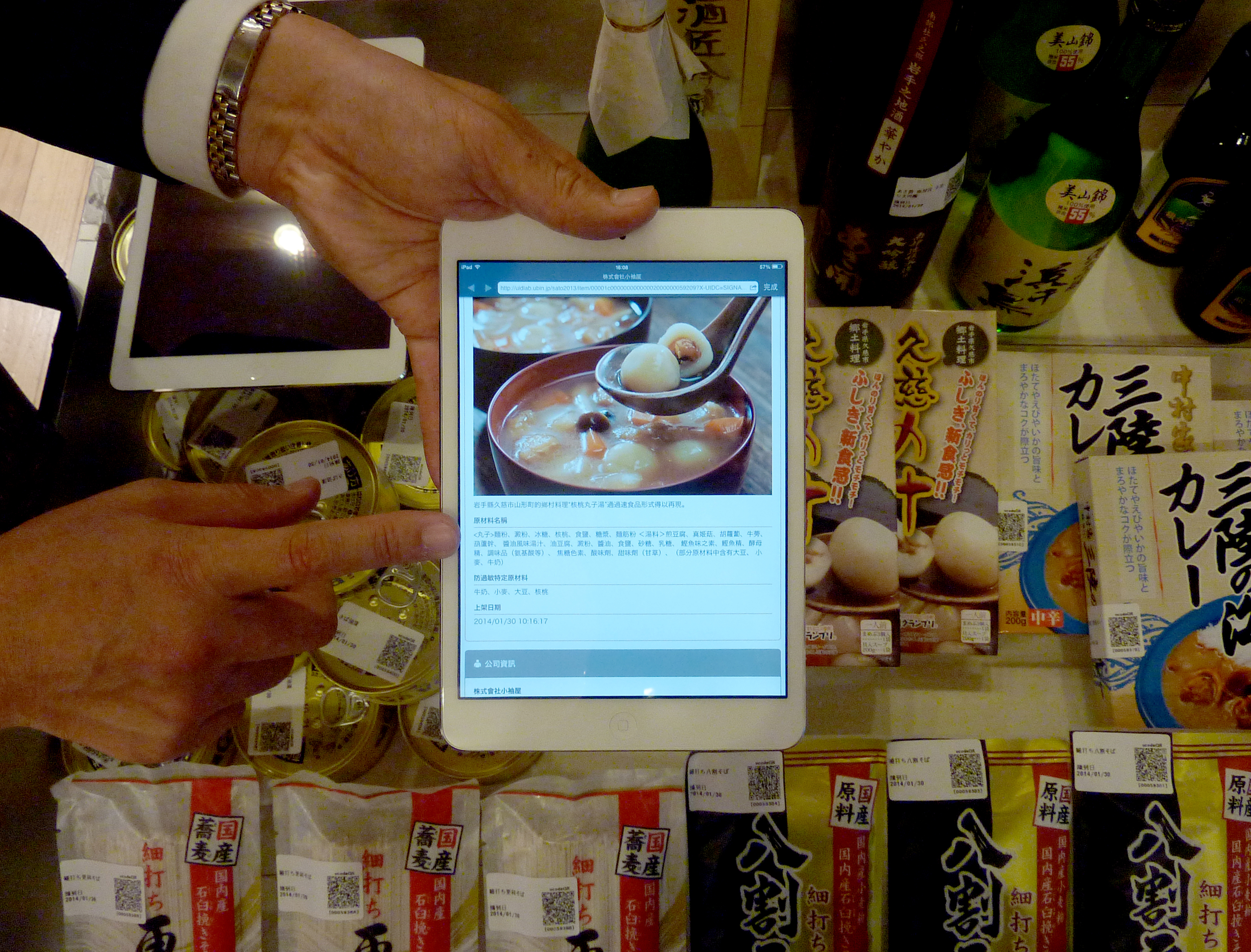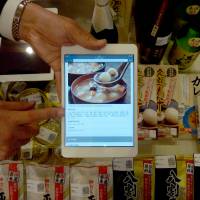To respond to growing demand for multilingual information on Japanese food and other products, bar code printer and software provider Sato Holdings has developed a system where people can call up information on potential allergens or religiously sensitive ingredients on their smartphones in foreign languages.
The Tokyo-based company recently concluded a weeklong experiment in Tokyo's Ginza district at Iwate Ginza Plaza, a regional food and souvenir shop run by the Iwate Prefectural Government, and at Mitsukoshi department store.
At the Iwate store, the company attached bar codes to 29 food items so visitors could call up information in English and Chinese simply by scanning them.
Likewise at Mitsukoshi, smartphone users could call up floor guides and products recommended by the store.
The Ginza experiment was part of the Tokyo Ubiquitous Technology Project, which aims to standardize IT infrastructure in Tokyo and is led by Ken Sakamura, professor of information studies at the University of Tokyo.
A spokeswoman at Sato said the firm hopes to market this bar code platform first to merchants in Ginza, then across Tokyo and throughout Japan, in time for the 2020 Tokyo Olympics, when a deluge of foreign visitors is expected.
In the future, the company hopes to offer the services in Korean, Russian and Spanish, she said.
"We want to assure the safety and security (of Japan) to visitors," she said. "We also want to make it possible for anyone to get the information they want at any time."



















With your current subscription plan you can comment on stories. However, before writing your first comment, please create a display name in the Profile section of your subscriber account page.